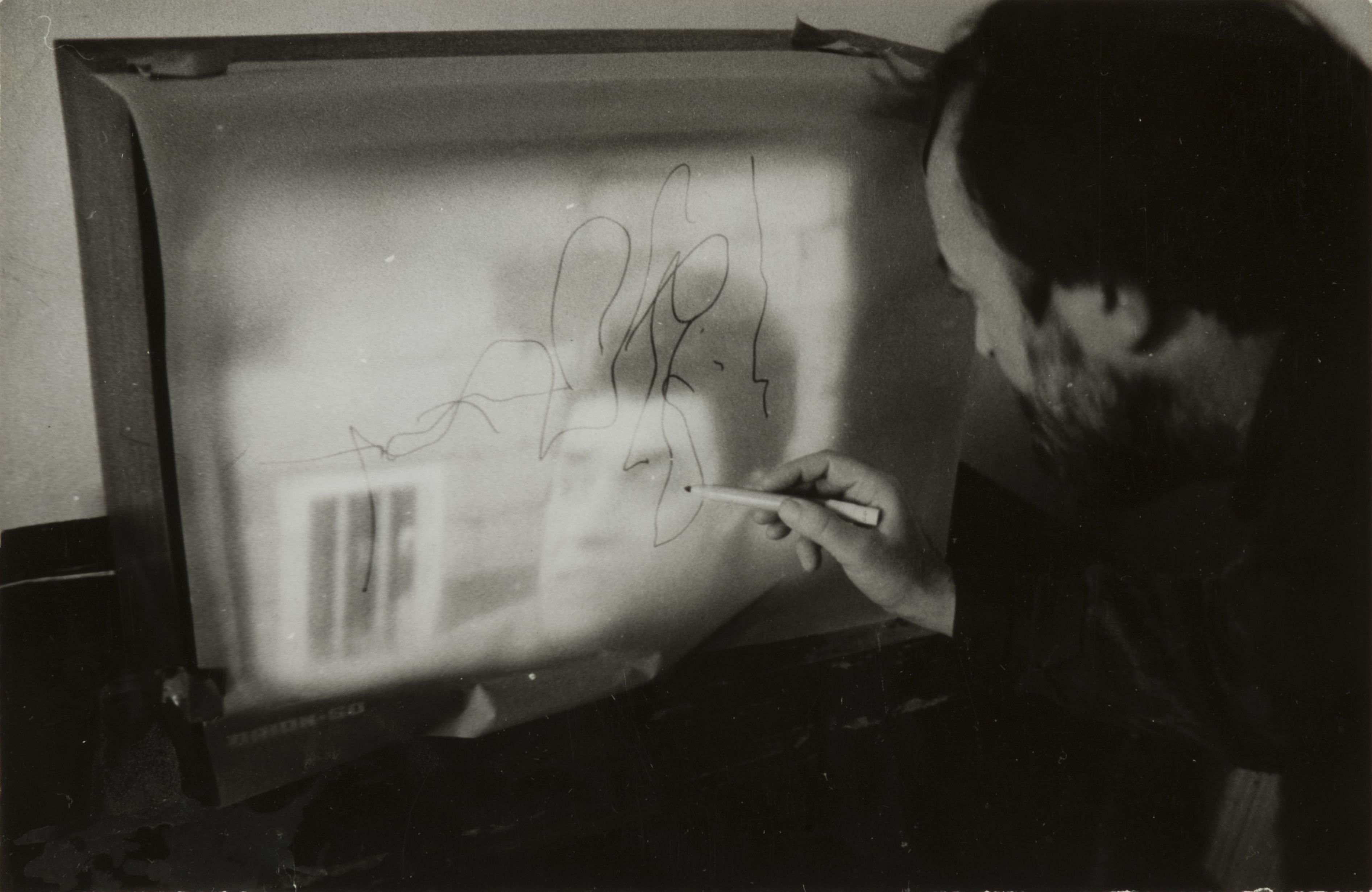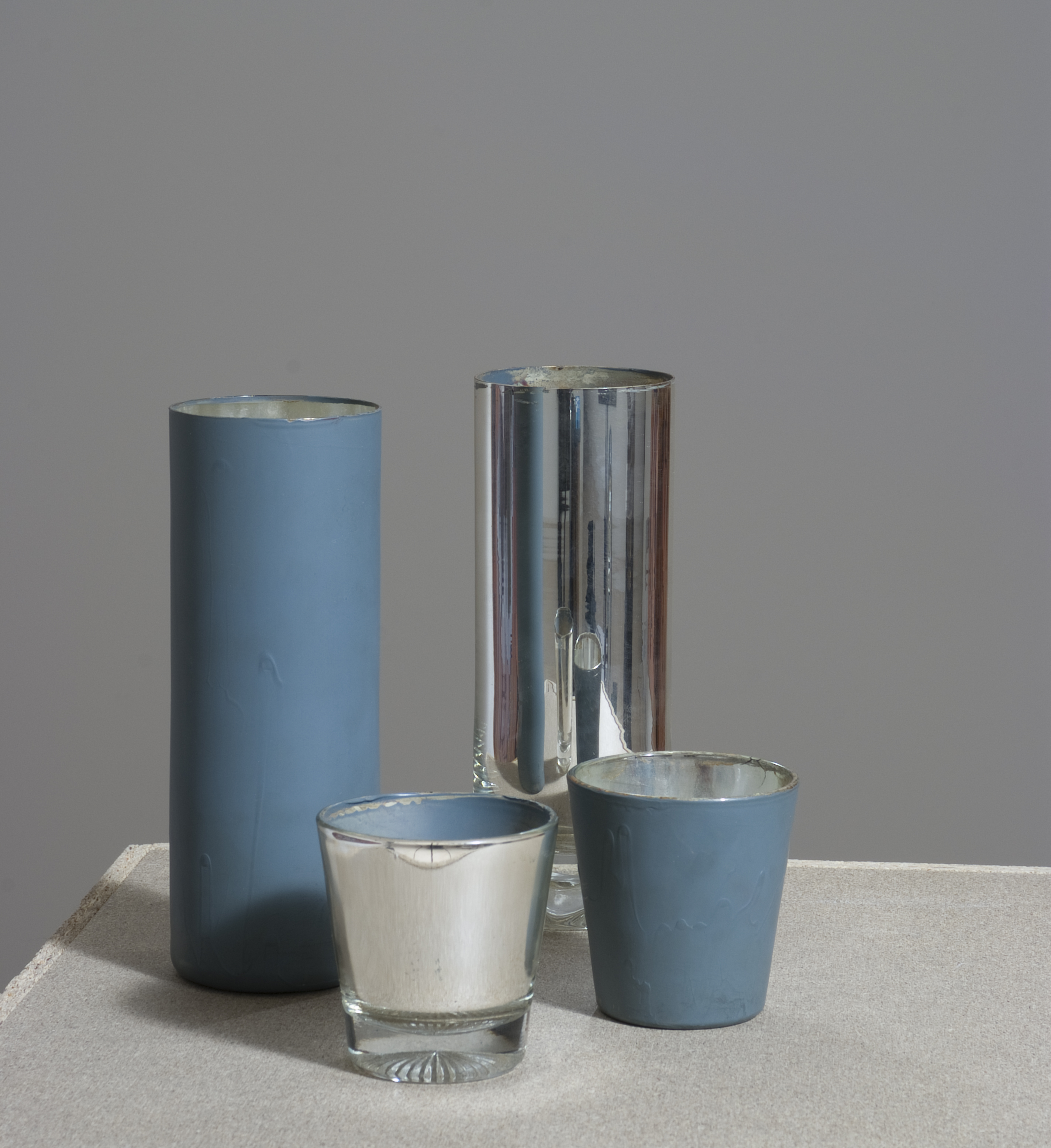Miraculous system was originally the title of one of Tolvaly’s public performances, performed in 1975 in the Young Artists’ Club in Budapest. This spot used to serve as a shelter for artistic endeavours and projects that stepped over the restricted intellectual boundaries of cultural politics of the period.
One part of the system was actually exhibited: two large boxes of matches were put on a support, lying side by side, one of them impregnated and filled with water, the other containing photos of the former box. Both of them were slightly open to intrigue viewers who were even allowed to further open the boxes – an instruction sheet placed next to the boxes providing help for this. The other part of the system consisted of 10 little (real size) matchboxes, alike impregnated and filled with water, placed randomly all around the stairwell, the buffet and the club hall. The performance actually started whenever a viewer, wishing to light a cigarette, took up a matchbox, shook it automatically to check if there are any matches in it, but only water splashed onto him/her.
This Miraculous system included all intellectual pursuits that span through and characterize Tolvaly’s entire life-work. Reconsidering the notion of art-work as well as of artistic activity is a constant feature of Tolvaly’s art. In the 1970’s and the beginning of 1980’s he created numerous works that survived only in fragments or in the form of documentation. When exhibiting them and their reconstructions we would like to present to the wider public a segment of Tolvaly’s oeuvre that has been, in fact, unknown until today.
Ernő Tolvaly, an enigmatic figure of Hungarian art life, is primarily known for his artistic activity involving painting. In spite of his quiet personality, he exerted an influence on his colleagues as an artist, an organizer and a teacher, from the 1970s until his death in 2008. He attended the Hungarian University of Fine Arts between 1972 and 1976, his master was Simon Sarkantyu. Already during his study years he was a member of the Rózsa-kör, later on also active participant of other Hungarian artist groups, e.g. the Mini Gallery and the Rabinec group.
Beside painting, Tolvaly’s artistic activity encompassed action, photography, installation and object art, too. The common intellectual base of all these various art forms was his continuous interest in issues of image-making, vision, colour, reflection and perception. This wide variety of genres reflects not only Tolvaly’s curious, inquiring mind, but also his sense of humour. In his late years, crossing over styles and periods, he repainted with virtuoso technique works by great predecessors (for example Cézanne, Monet), adapting their image-making methods and projecting himself into their image-making activity.
András Lengyel, Tolvaly's close friend and colleague contributed to the exhibition with the interpretation of the complex intellectual bequest. Noémi Forián Szabó and Péter Sáránszki also made important, enriching contributions by their research on Tolvaly's life-work. The interpretation field provided by the artworks is further extended and completed by archival documents that have come into light during preliminary research. These documents also give an insight into Hungarian artist life in the 1970’s and 80’s.
The retrospective exhibition presents all stages of Tolvaly's life-work along the main thematic headlines. The core of the exhibited material was provided by the Monogram Alapítvány (Foundation), keeper of the Tolvaly bequest. By this undertaking the Ludwig Museum’s goal is to shed new light on Tolvaly's oeuvre, as such a monumental exhibition, presenting the artist’s entire career from multiple aspects, had never been organised in the Tolvaly’s life.
Curator of the exhibition: Krisztina Üveges
Further important contributors: Noémi Forián Szabó, András Lengyel, Monogram Alapítvány, Péter Sáránszki







